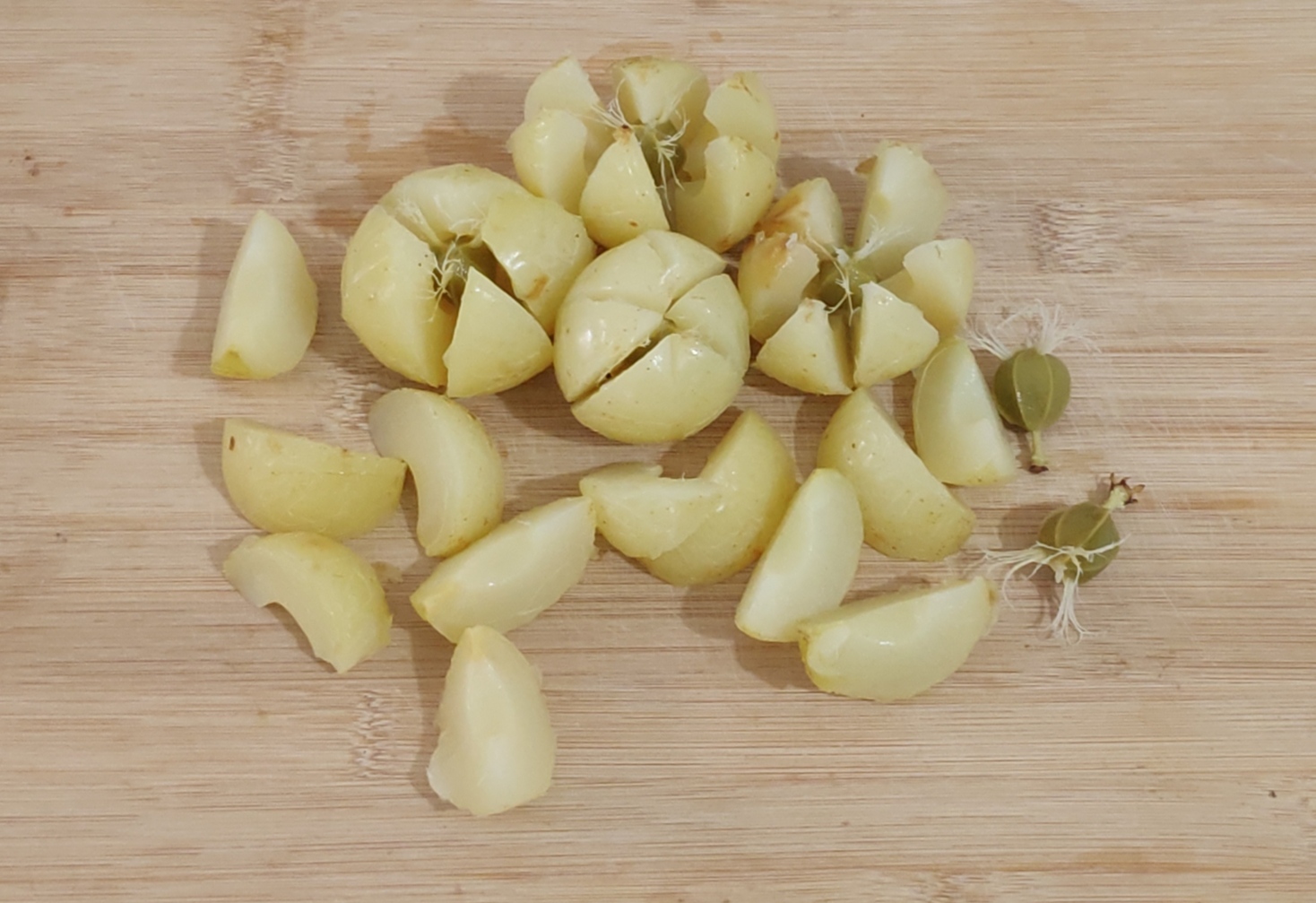Recipe: Darshana Muzumdar
Lasts for 6 months
This is a very simple and easy to make recipe if you have the readymade mix of pickle spices. There are several brands and they are available in almost all grocery stores.
Ingredients
- 250 gms (around 6) amla/avla (Indian Gooseberries)
- 1/2 cup mustard oil
- 50 gms readymade pickle spices
- 20 gms (1 tbsp) unrefined or rock salt
Method
- Wash the amla and put them in a thick steel bottom pot.
- Add one cup of water and bring to a boil. Lower the heat and cook for around 10 minutes till they are slightly soft and the ‘petals’ or ‘wedges’ kind of start opening.
- Drain the water. (You can have the warm water as a drink by adding a little salt if you wish.) Allow the amla to cool a little and then separate all the wedges and discard the pit.
- Chop the wedges into smaller pieces if you wish or use them as is. I usually chop each into three pieces.
- Heat the mustard oil till it comes to smoking point. Immediately turn off the heat and take the pot off the fire and allow the oil to cool a little.
- Add the pickle spices, amla pieces and salt to the cooled oil and mix it all well.
- Pour the contents into a clean glass jar and allow to cool a little more. Cover the jar with an airtight lid and rest the pickle for at least three to four days before you start having it.
Note: The oil is brought to smoking point to remove the strong pungent flavour.
Always use a fresh dry spoon to remove pickle from the jar. Any kind of moisture will spoil the pickle.
Though mustard oil has some benefits, it is still an oil and should be consumed in small quantities.
This dish is not Whole-Food Plant-Based because of the use of oil.


Share this:
- Click to share on Facebook (Opens in new window)
- Click to share on WhatsApp (Opens in new window)
- Click to share on Twitter (Opens in new window)
- Click to share on Pinterest (Opens in new window)
- Click to share on LinkedIn (Opens in new window)
- Click to share on Reddit (Opens in new window)
- Click to share on Tumblr (Opens in new window)
- Click to share on Pocket (Opens in new window)
- Click to share on Telegram (Opens in new window)
- Click to print (Opens in new window)
